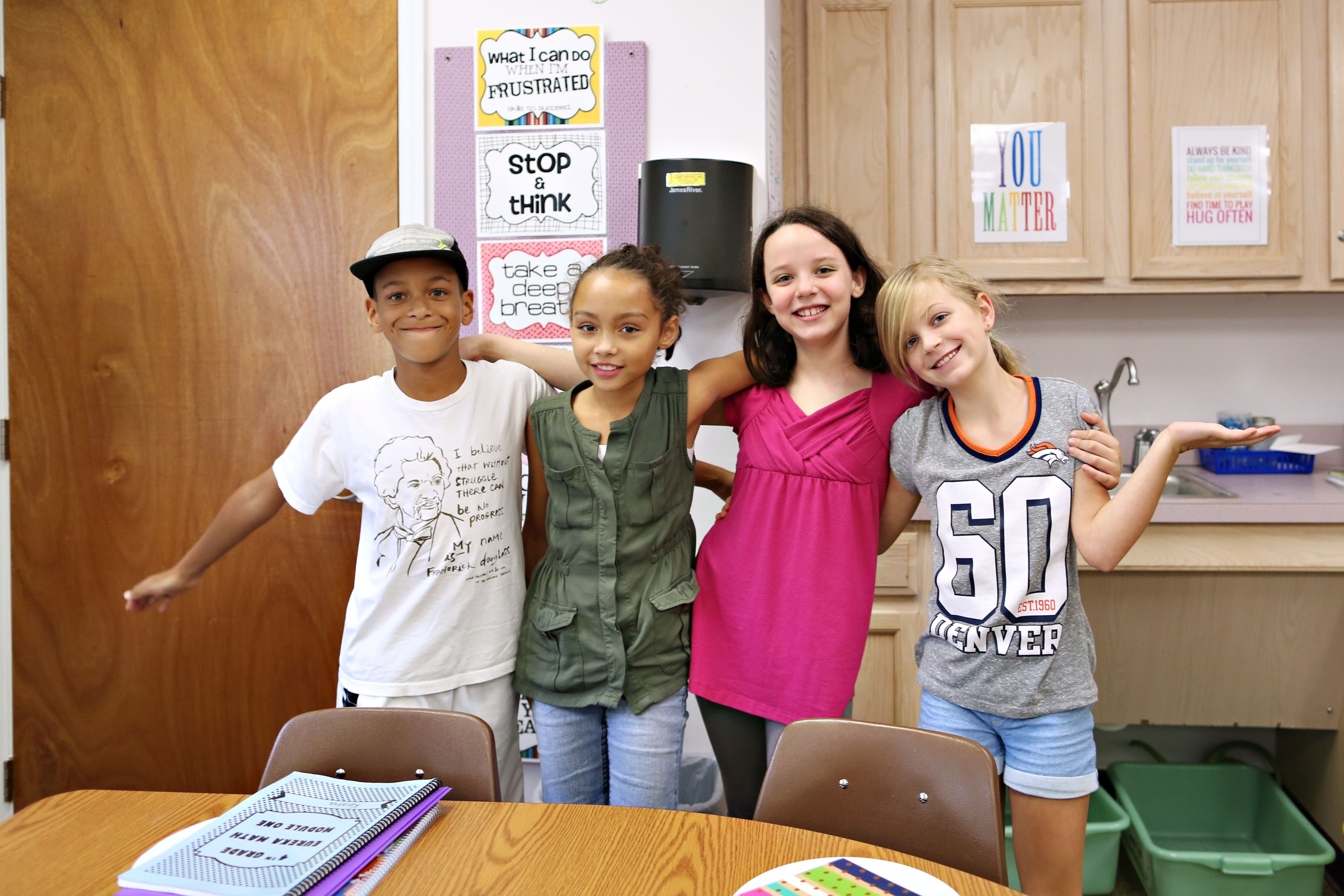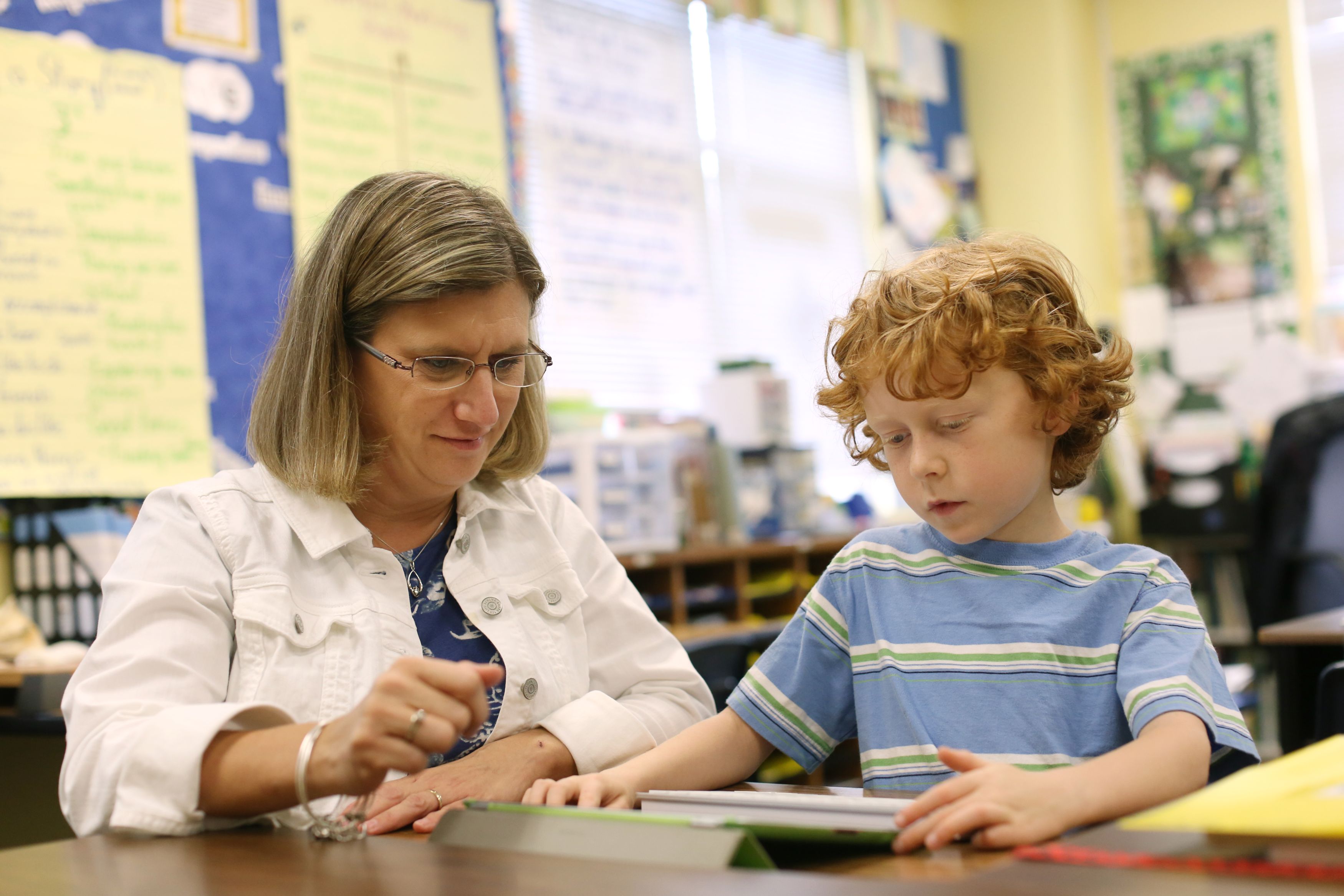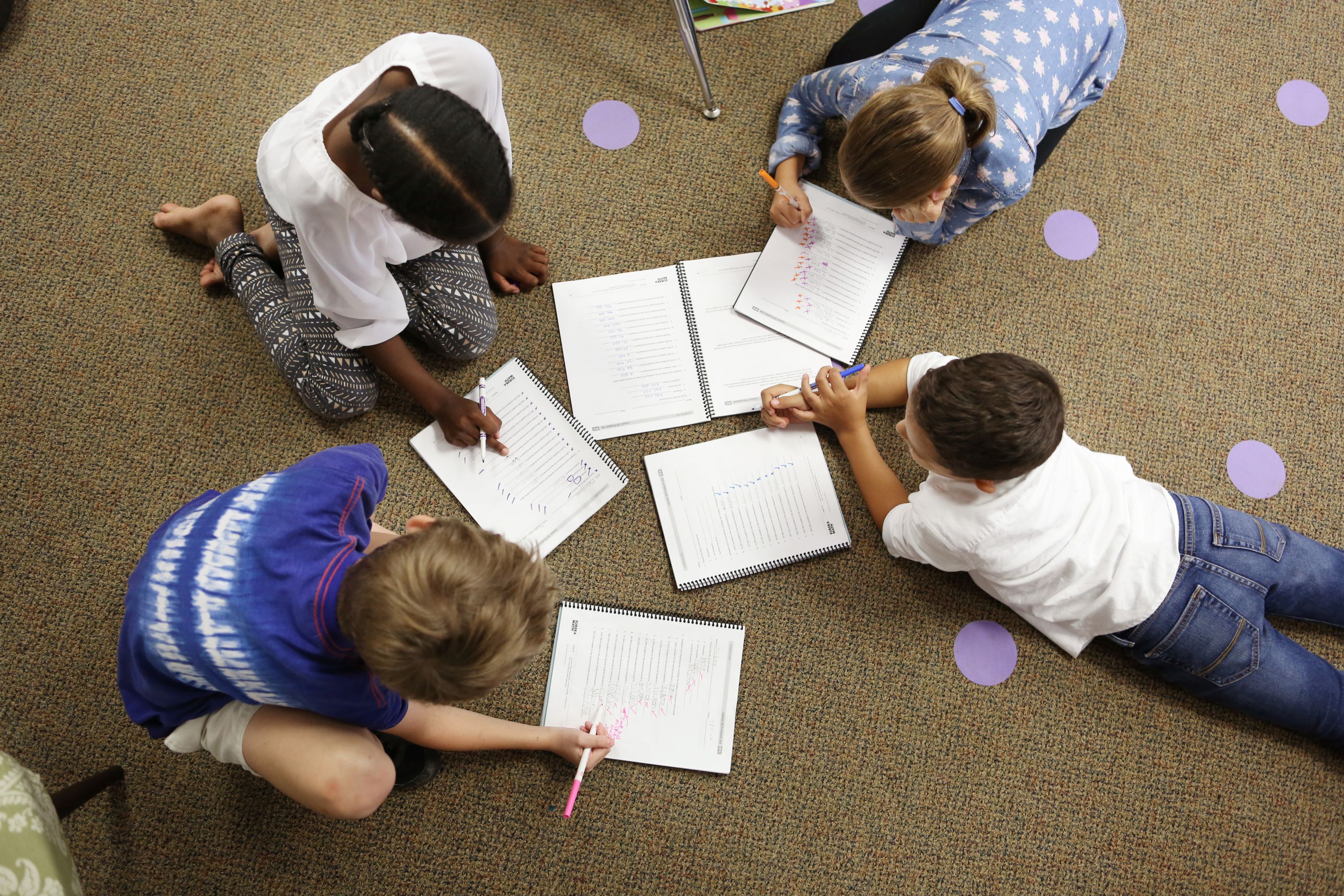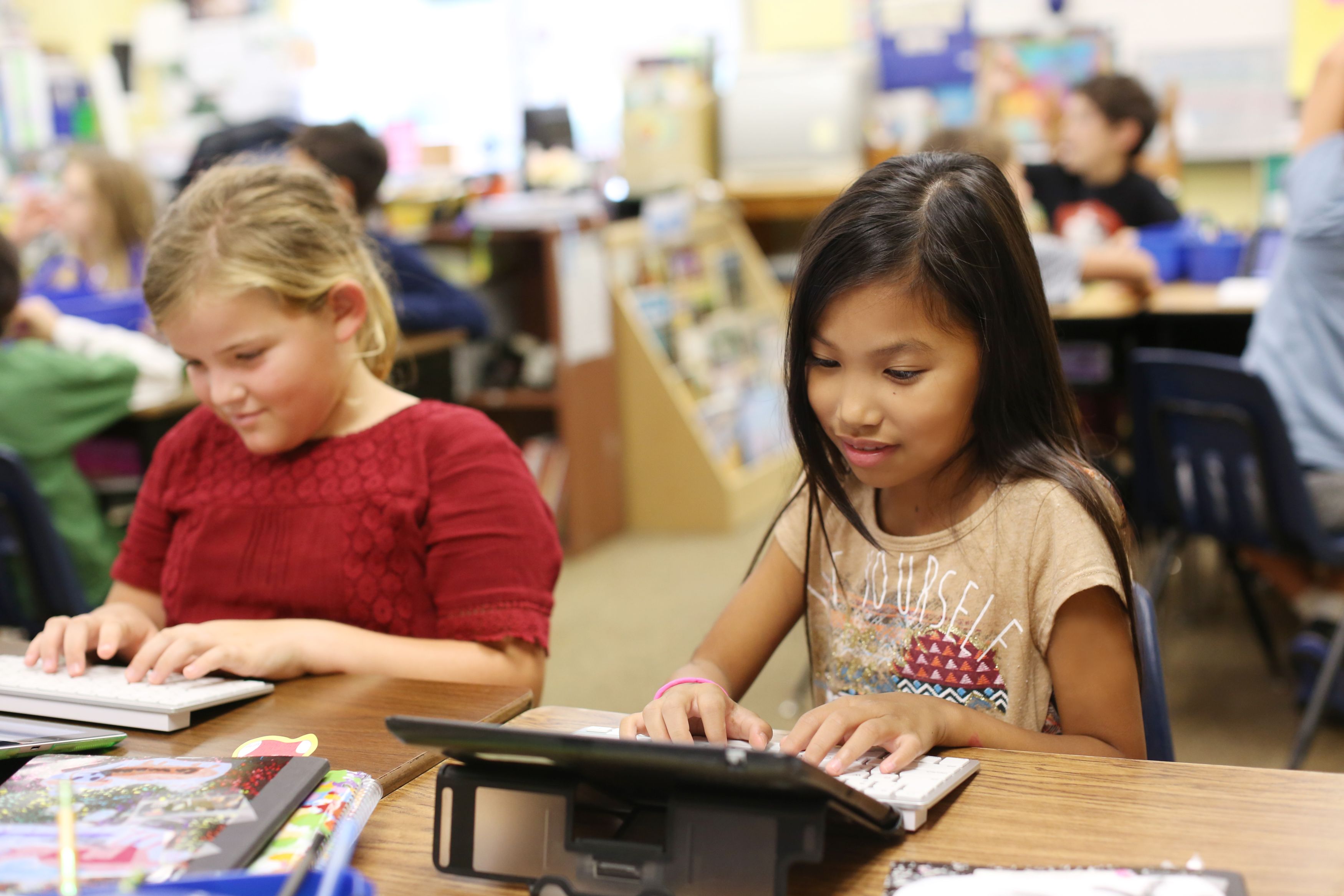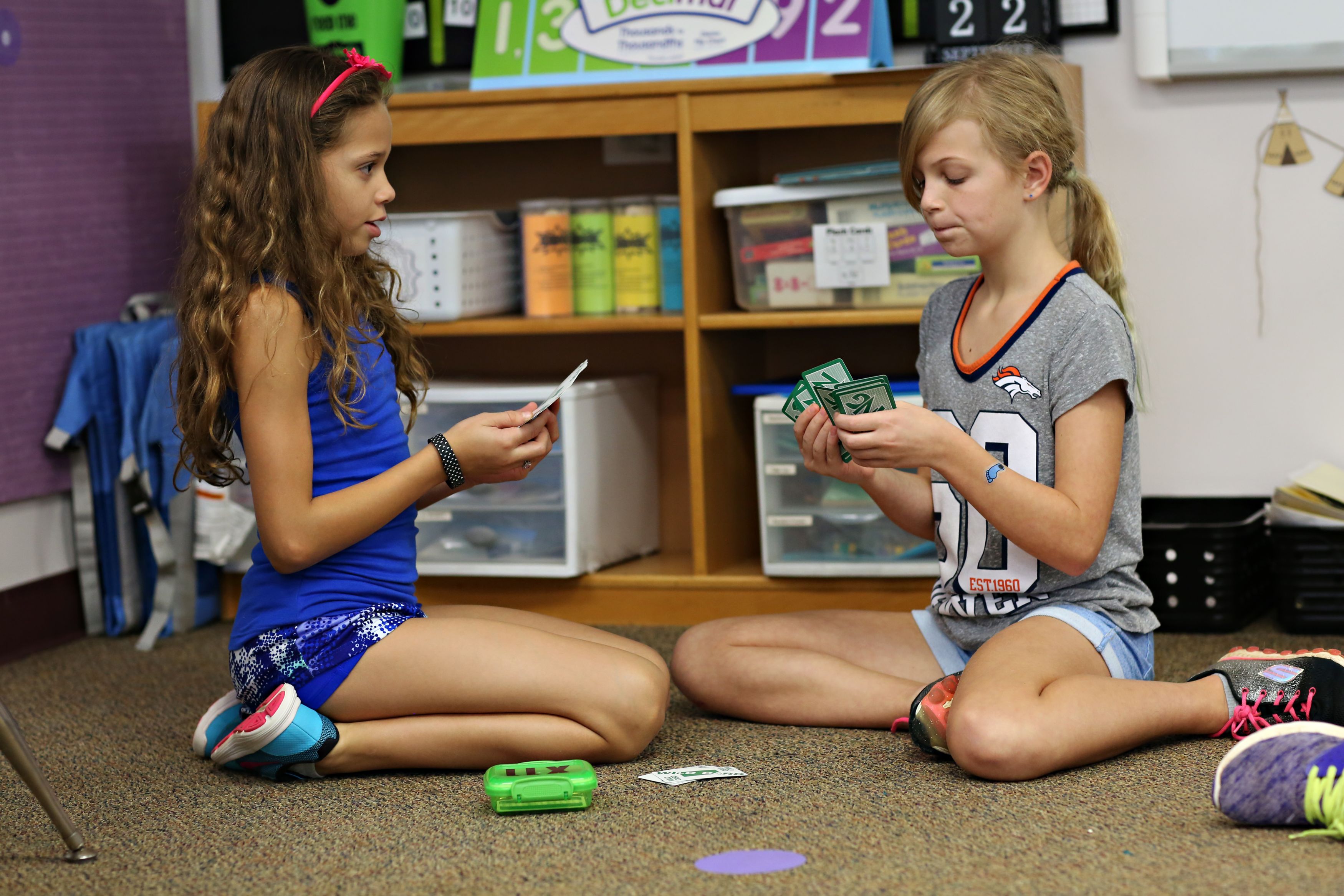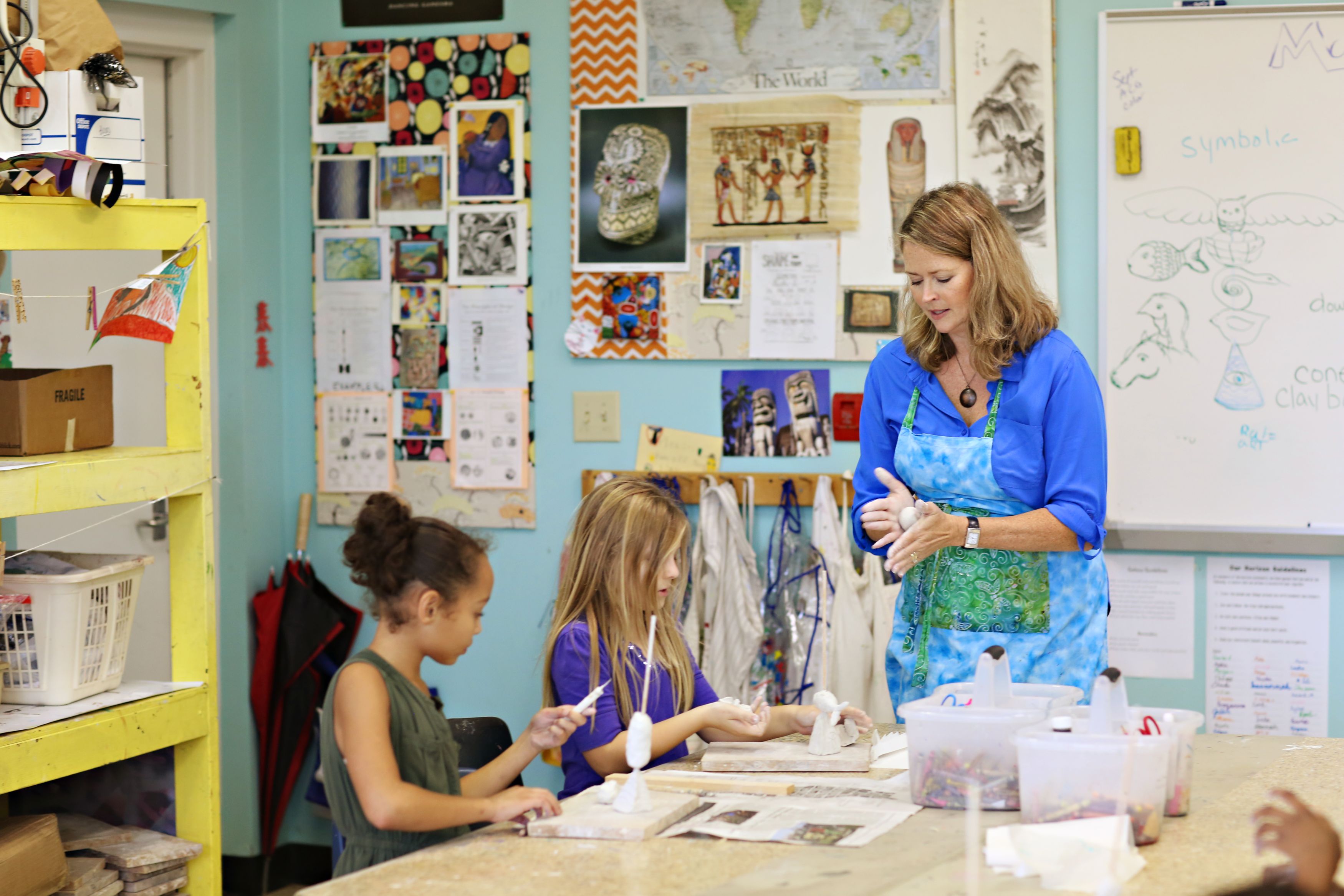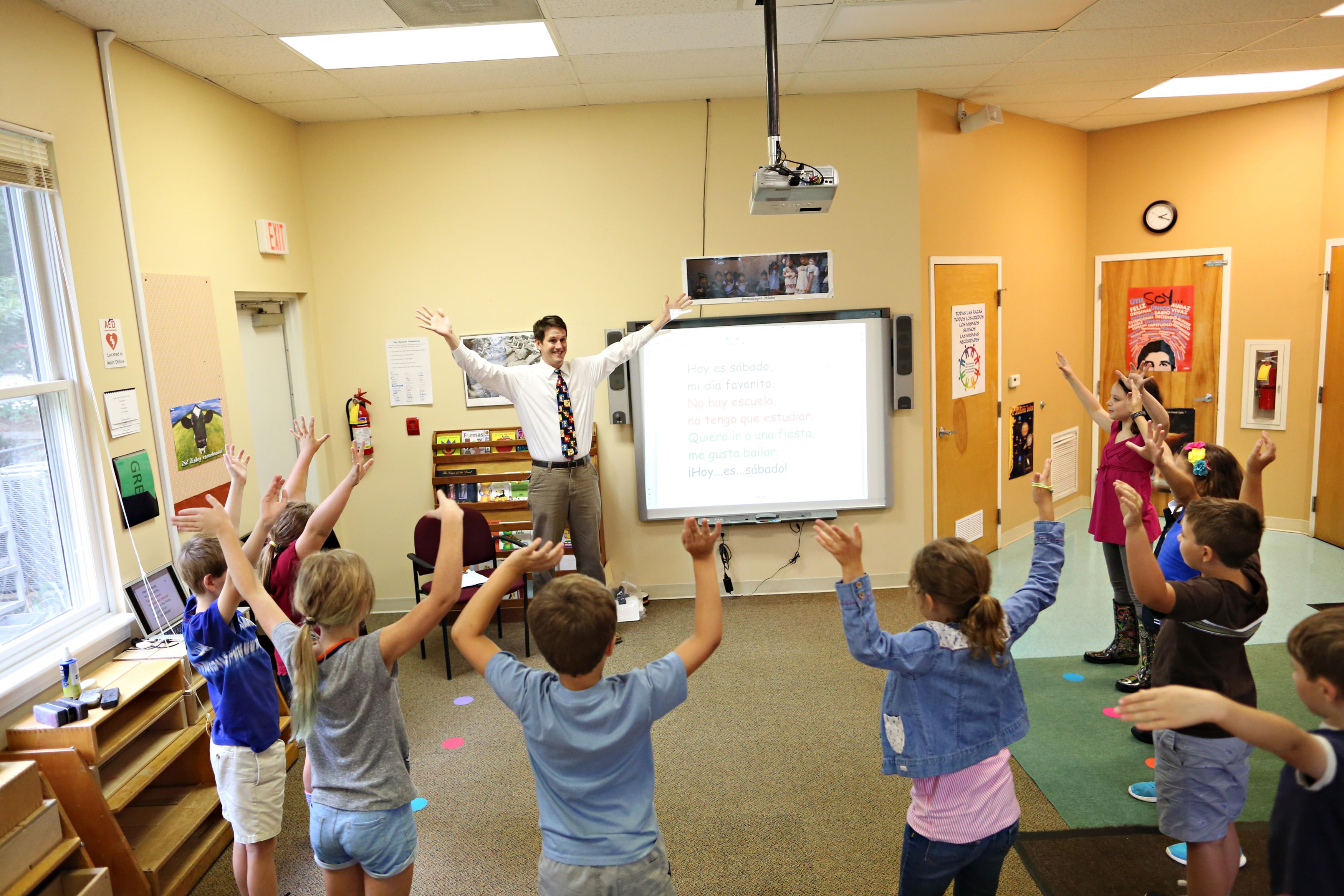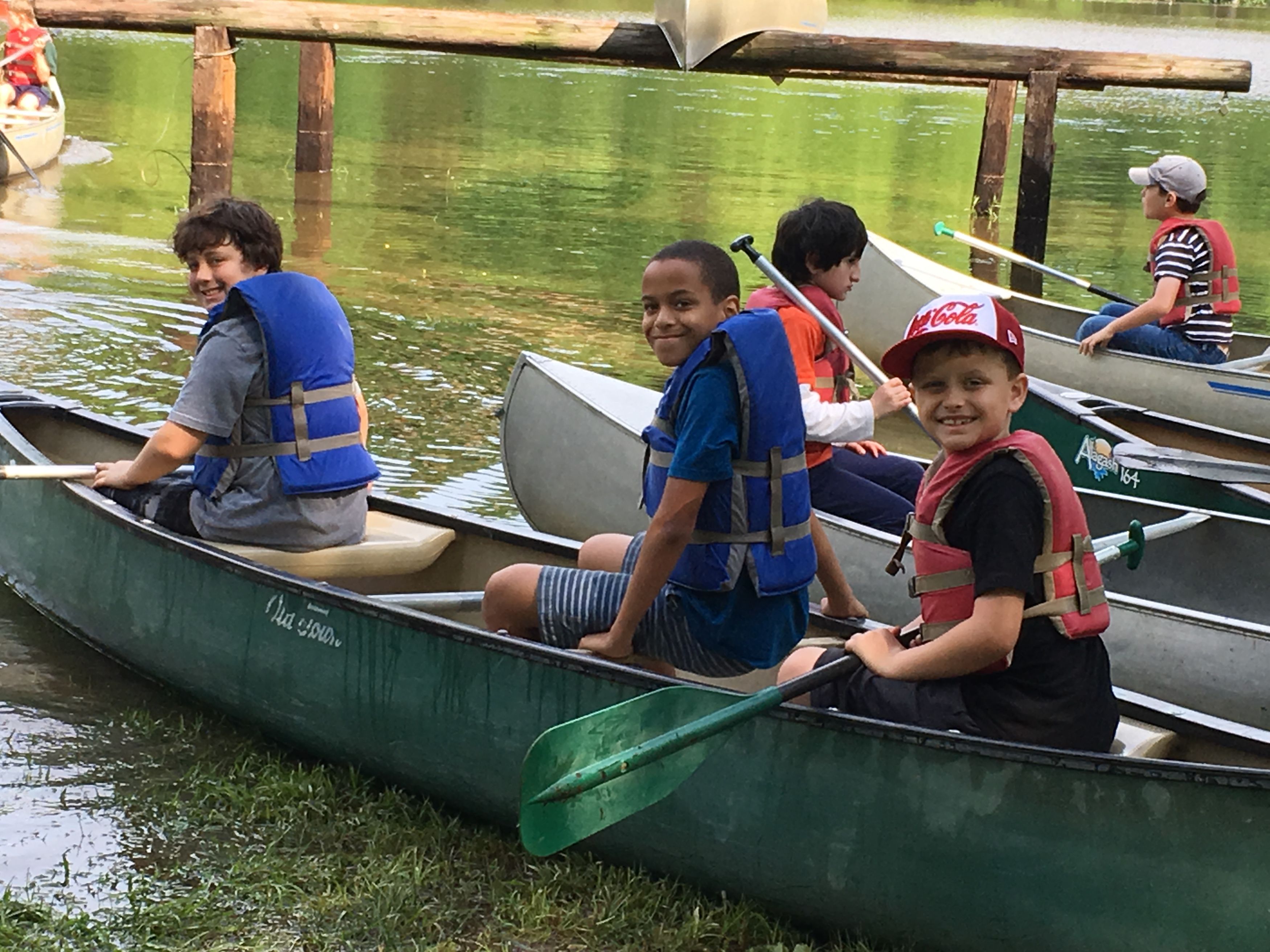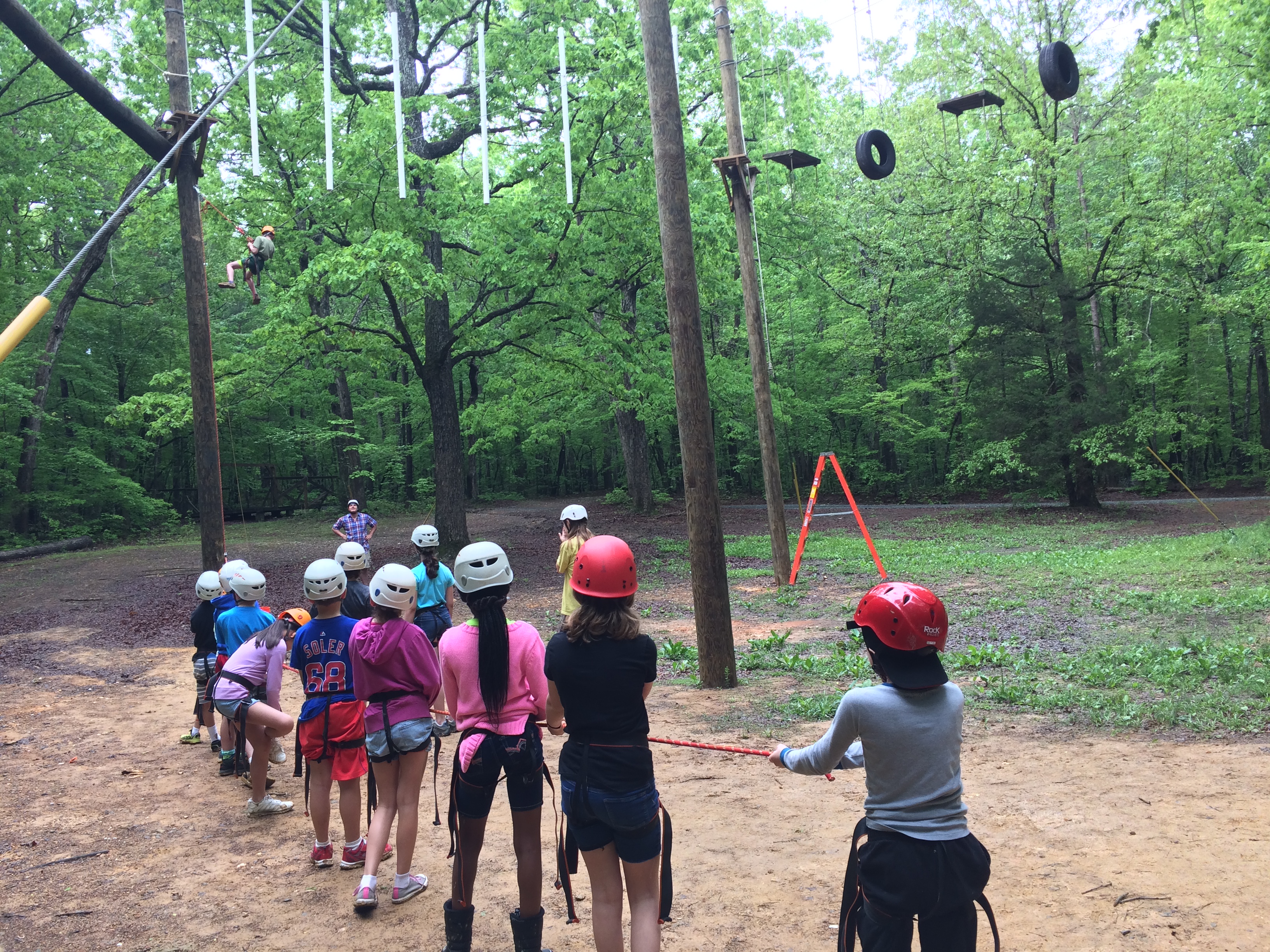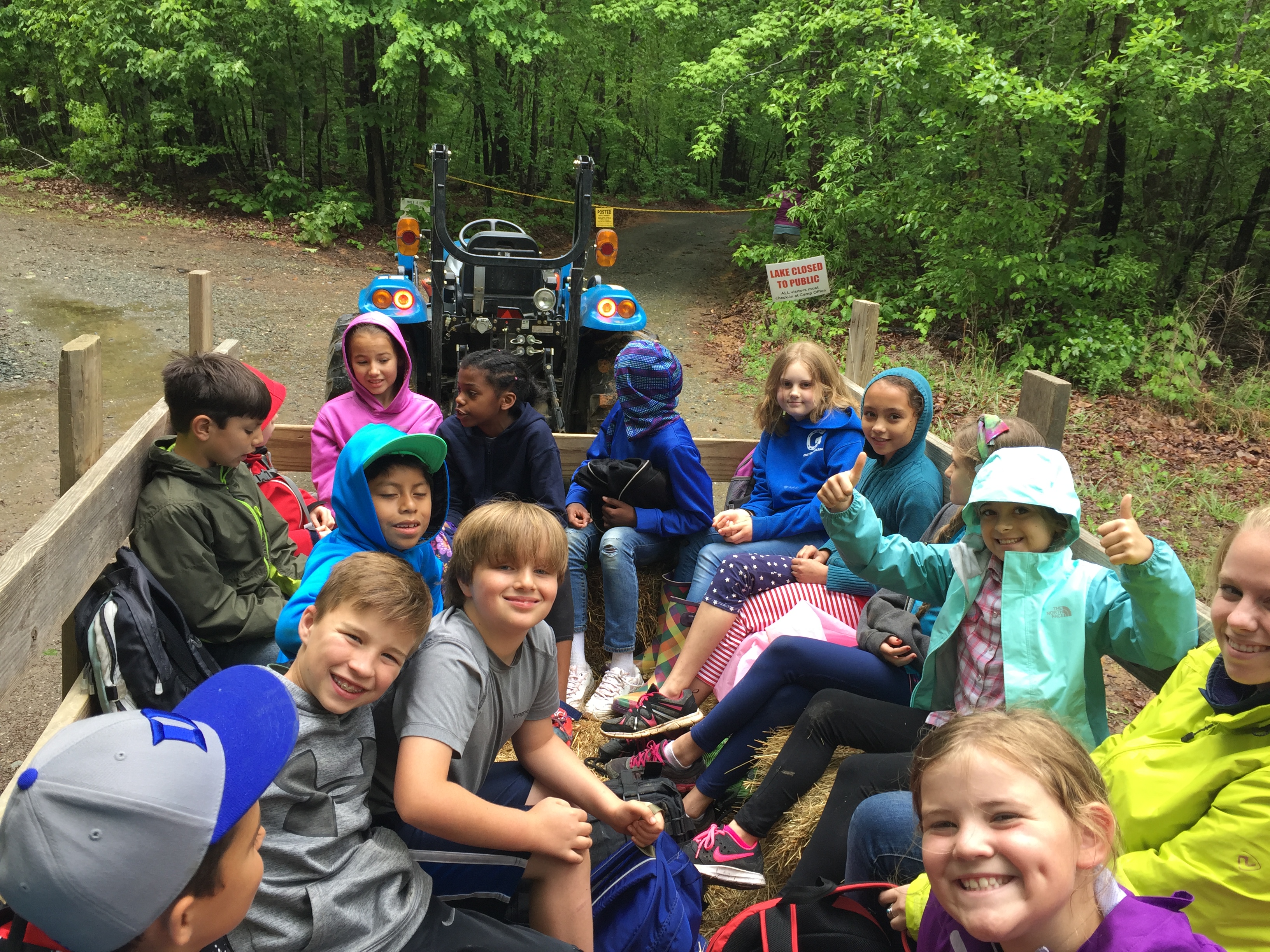Grades 3 and 4 - Horizon
Our multi-grade classrooms create a cycle of leadership. When students move to a new classroom, they make new friends and renew friendships with former classmates. Students remain in the same classroom for two years.
PHOTO GALLERY: See what life is like in Horizon!
From partner reading and whole class discussions, collaborating with classmates and teachers in hands-on activities and scientific discoveries, working and playing outside, and donating class garden produce to those in need, our Horizon students spend each day in a space where they are honored and known.
COMMUNITY
A Learning Community
Students at this level are keenly aware of issues of justice; they are beginning to think beyond themselves and to appreciate the power of words. At NGFS, students develop their own classroom guidelines. When third and fourth graders begin this process, it is quickly apparent that they are quite adept at knowing what is needed for their classroom to function so that each student is respected and able to learn. The process of developing specific guidelines for their own community engages them in critical collaboration about how they will live and work together. Disagreements occur and students have the opportunity to defend their choices about what rules needs to be included, or even the particular wording of a rule. As they work through the Quaker process of coming to consensus, they are learning to listen and to consider how to honor the individual while being mindful of the group.
Developing guidelines takes time, but with support, students at this age have the ability to work through the process. They take their task seriously and accept responsibility for their classroom community. There is nothing that matches the grins on their faces when these guidelines are complete!
ACADEMICS
.jpg)
Experiential Learning Beyond the Classroom
At NGFS, thematic units integrate subjects and content areas. Our hands-on, experiential course of study provides the opportunity for students to apply their knowledge in meaningful ways. The ability to see beyond oneself makes third and fourth graders capable of working successfully in small learning groups that are project or games based. Group projects allow students to assume many roles including collaborator, leader, and negotiator. To keep learning personalized and motivating, third and fourth grade students frequently have the opportunity to choose an area of interest within the topic assignment.
When our third and fourth grade students study Native Americans, small groups of students gradually create an environmental landscape that showcases the tribal dwellings, clothing, and geographic features of the land they are studying. These kinds of group endeavors provide opportunities for students to develop new skills as they experience different roles and responsibilities. At this level, students are assigned their first home projects building on what has been learned in class. Students have a timeline of due dates to help them learn time management for their work outside of the classroom. Opportunities for enrichment and optional projects also begin at this level.
MORE THAN CORE
Beyond Core Academics
Twice a week students have opportunities for enrichment in the areas of art, music, Spanish, and PE. Students may study Suzuki violin or choose a traditional Music class.
Service Learning: Students enjoy working in small groups on projects that help people and animals in our community. One favorite project is making a meal for people in the community. Each fall, the Horizon class coordinates a collection of food for Out of the Garden Project.
Beginning in third grade, students have the opportunity to participate in the drama production. For one semester each year, some of the rehearsals occur during service learning time. These students serve their community by sharing their talents and entertaining both the school and greater community.
BUILDING INDEPENDENCE
Building Self-Reliance: Fall Trips and Spring Capstone Trips
Field trips are an integral component of the Horizon class curriculum. Students are able to experience concepts and ideas first hand, and explore natural environments different from their own.
Students go on overnight field trips in the fall and spring. The fall trip is a one-night trip and the programming focuses on community-building, with curricular connections. In addition to educational and community building activities, this helps prepare students for our lengthier spring trip. In April, Horizon takes a longer trip (four days, three nights) with programming that integrates elements from all units studied.


